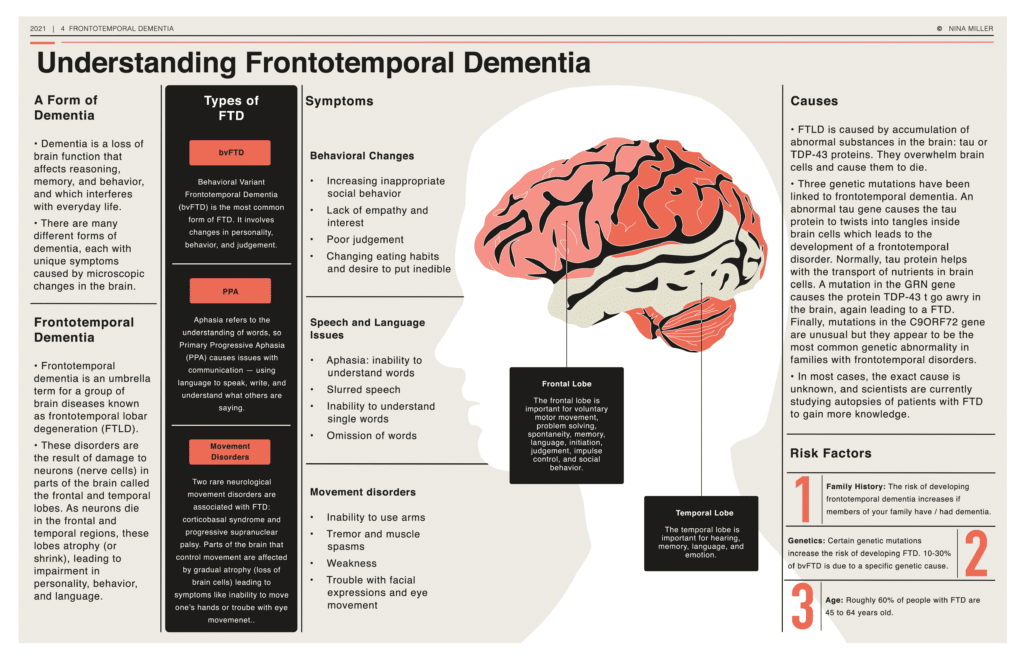Frontotemporal disorders are a form of dementia caused by a family of brain diseases known as frontotemporal lobar degeneration (FTLD). These disorders are the result of damage to neurons (nerve cells) in parts of the brain called the frontal and temporal lobes. As neurons die in the frontal and temporal regions, these lobes atrophy, or shrink. Gradually, this damage causes difficulties in thinking and behaviors controlled by these parts of the brain. Many possible symptoms can result. They include strange behaviors, trouble regulating emotions, language challenges or difficulty with walking and other basic movements. Frontotemporal Dementia is the most common dementia for people younger than 60.
Frontotemporal dementia can be grouped into four types, defined by the earliest symptoms physicians identify when they examine patients.
- Behavioral variant frontotemporal dementia (bvFTD)
- Semantic variant primary progressive aphasia (svPPA)
- Non-fluent/agrammatic variant primary progressive aphasia (nfvPPA)
- Logopenic variant primary progressive aphasia (lvPPA)
What treatments are available?
Currently there are no curative treatments available for frontotemporal degeneration (FTD). The current goal of therapy in treatment of FTD is symptomatic relief. Sometimes doctors will prescribe memory medications that are often prescribed for people with Alzheimer’s Disease. Learn more about medications prescribed for memory from the Alzheimer’s Association. Beyond memory medications, some people with FTD may benefit from medications to help with mood changes. You may find it helpful to have a geriatric psychiatrist on your treatment team.
Beyond medications, it’s important to stay mentally, socially, and physically active to help with cognition. Learn more about ways to optimize your brain health from AARP’s Global Council on Brain Health. Research has shown physical exercise, a heart-healthy diet, limiting alcohol intake, getting good sleep, mood management, and staying socially and mentally active, to all optimize brain health.
To learn more about FTD research at the University of Pennsylvania, visit the Penn FTD Center.
Resources:
